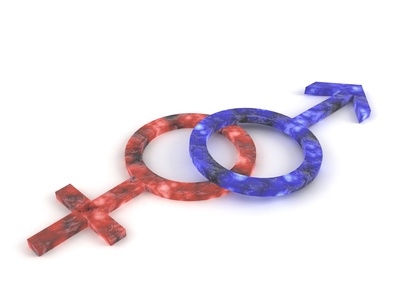Discrimination is a term defined as the practice of treating somebody or a particular group in a society unjustly than others due to some personal characteristic that is protected by law.
Discrimination is a kind of behavior which can be of any form but the common thing involved in them is the rejection and exclusion. Discrimination isn’t acceptable in its any form anywhere in the world and for this reason strict laws have been devised against the discrimination in most part of the world. Discrimination is pretty much common in employment where people often face difficulties regarding age, sex, religion, disability, race etc. Employers are legally accountable for their staff’s behavior.
Discrimination is strongly condemned and lawfully prohibited on all the stages of employment such as recruitment, staff selection, interview, workplace, dismissal and dealings. The Equal Opportunity Act 1995 passed to make it unlawful to discriminate against a person or a particular group on the basis of age, race, permanency, sex, religion, personal association and so on.
Age Discrimination
Age discrimination is discrimination in terms of age, i.e. when a person is treated unfairly on the basis of age his or her age. The Age Discrimination in Employment Act (ADEA) only discourages the discrimination against the people who are over 40 years of age. This ADEA act however, doesn’t favor the younger workers. There are many states where there are age discrimination laws for younger workers as well.
It is against the law in many states to favor one worker over another just because of the age differences. Employers are liable to treat people of all ages equally.
Disability Discrimination
Disability discrimination is also very common in workplaces where a qualified employee or an applicant is treated unjustly just because of having a disability. Such discrimination is protected by Americans Disabilities Act or the Rehabilitation Act. It is not necessary to have some physical disability – the discrimination can be due to having a history of disability such as having a cancer, having physical or mental impairment (which is not permanent) or any other minor impairments.
Pregnancy Discrimination
It is another type of discrimination where pregnant women are discriminated for being pregnant, childbirth, or any other medical condition or disease associated with pregnancy.
Such sort of discrimination is strongly condemned by the law especially at workplaces. It is against the law to treat the pregnant women unjustly at the workplace in terms of pay, health insurance, promotions, hiring, firing, benefits, vacations or holiday pay etc.
Equal Pay/Compensation Discrimination
Equal pay/compensation discrimination is a type of discrimination in which the workers are not given the equal pay/compensation for doing equal work. This doesn’t mean that the jobs of those workers are alike but the thing matter is job content. The Equal Pay Act protects the rights of the people in terms of salary, bonuses, overtime pay, stock options, benefits, life insurance, vacation and holiday pay, travel expenses, hotel accommodations, gasoline allowances, profit sharing hence all the necessary components that falls within the pay/compensation category. It is strictly against the law to reduce the wages of few workers to increase the others especially between the opposite sexes, i.e. men and women.
Genetic Information Discrimination
This is a type of discrimination which is based on genetic information of the individuals. Genetic information is basically comprised of the information regarding genetic tests of a concerned person, genetic tests of person’s family along with the information related to the symptoms of a disease or disorder in the family medical history. Family medical history is often incorporated in the genetic information to infer if a person has any heightened risks of receiving any disease, or disorder in upcoming time.
Discriminating a person just on the basis of genetic information is strictly unlawful. Genetic information should have no impact on the hiring, firing, promotions, training, fringe benefits, job assignments or layoffs. Genetic information is no way to determine the position and working abilities of the employee.
National Origin Discrimination
National origin discrimination is a type of discrimination in which people are discriminated or treated unfairly just because of their national origin. This type of discrimination is solely associated with ethnic background or accent. However, they are often treated strangely because of having appearance like any particular racial or social group.
Another aspect of national origin discrimination is that where people are married to an individual belongs to any certain origin or racial group.
Race/Color Discrimination
It is another common type of discrimination often seen at workplaces or in general. People are discriminated on the basis of having a certain race or in few cases having a resemblance to a certain racial people in terms of hair color, skin color or other facial features. Color discrimination is something where a person is unjustly treated because of having a different color complexion such as white or black.
There is another form of race/color discrimination where a person of same race/color is discriminated for the fact that he/she has married to a person belongs to any other race/color.
Religious Discrimination
It is a type of discrimination in which a person or group of people is discriminated because of having any certain religious beliefs. This type of discrimination is also very common as people are often mistreated just because of contradictory religious beliefs such as Buddhism, Christianity, Judaism, Hinduism and Islam. Religious discrimination can be anywhere it is not restricted to any one religious belief.
Those who are married to a person belonging to other religion are often the one who face religious discrimination from the people possessing the same religion as that of a person.
Retaliation
Retaliation is a type of discrimination where the people who filed a charge of discrimination are mistreated by the employers in terms of firing, demoting, or harassing. They are mistreated or retaliated for filing a charge of discrimination against the employers. There can be many reasons for this retaliation other than filing a charge such as taking part in an employment discrimination proceeding etc.
It is against the law to retaliate against a person who filed a charge against an employer with the EEOC.
Sex-Based Discrimination
Sex-based discrimination is a type of discrimination that deals with the cases of discrimination based on any particular sex. In this sort of discrimination, a certain sex to say men or women are given priority over other sex in terms of workplace matters like pay, benefits etc.
Sexual Harassment
The cases of sexual harassment is more common in working women where women are harassed by male employers or co-workers or even in few cases by the same sex. Sexual harassment can be of any type such as unwelcome sexual advances, requests for sexual favors, and other verbal or physical harassment of a sexual nature. However, it is not always essential that harassment is of sexual nature, it can be in the harsh remarks against any particular sex. For instance, using offensive or harsh words for being a women or men is also come under sexual harassment.



